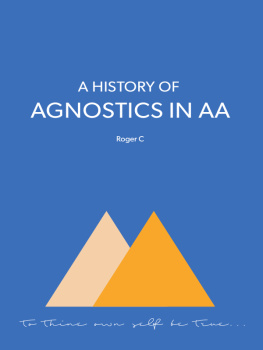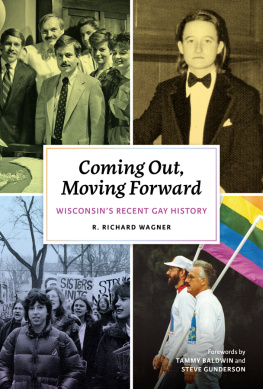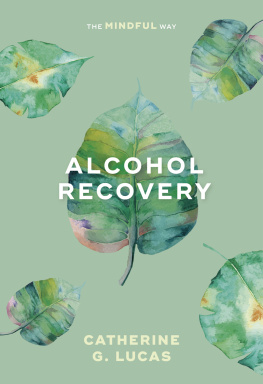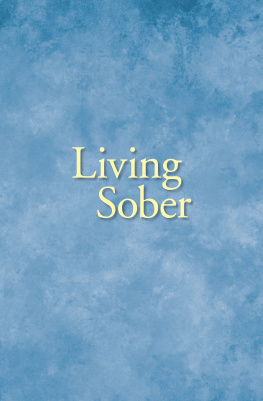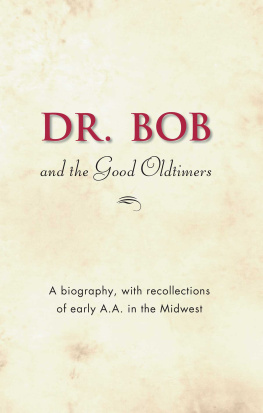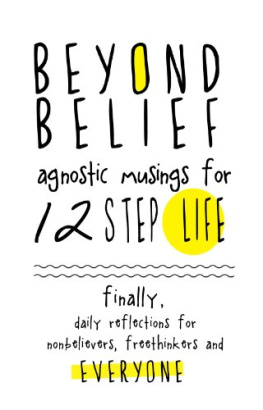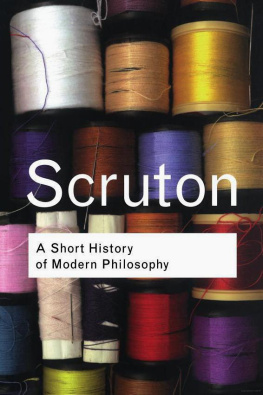A History of Agnostics in AA
Roger C
AA Agnostica
Table of Contents
A History of Agnostics in AA
Copyright 2017 AA Agnostica
All rights reserved. No part of this book may be used or reproduced by any means, graphic, electronic, or mechanical, including photocopying, recording, taping or by any information storage retrieval system without the written permission of the publisher except in the case of brief quotations embodied in critical articles and reviews.
Library and Archives Canada Cataloguing in Publication
C., Roger, 1950-, author
A history of agnostics in AA / Roger C.
Includes bibliographical references.
Issued in print and electronic formats.
ISBN 978-0-9940162-5-6 (softcover).ISBN 978-0-9940162-6-3 (ebook)
1. Alcoholics AnonymousHistory. 2. AlcoholismReligious aspects. 3. AlcoholicsRehabilitation. 4. AgnosticsMental health. 5. AtheistsMental health. 6. Twelve-step programs. I. Title.
HV5287.C78 2017
362.292'86
C2017-902118-4
C2017-902119-2
Published in Canada by AA Agnostica
Cover design by Kyla Elisabeth
Interior layout and eBook version formatted by Chris G
Preface
In case it is not clear early on, the author of this book, Roger C, has managed the website, AA Agnostica, since it was first created in mid-June 2011. The site is described as a space for AA agnostics, atheists and freethinkers worldwide.
Two of the sixteen chapters are written by life-j. Over the years, he has written a number of articles about secular AA including one called Open-minded which was published in the October 2016 issue of the AA Grapevine, an issue devoted to Atheist and Agnostic Members of AA.
We do not claim to have written about every one of the individuals, groups, meetings, websites, conferences, etc. which have been a part of the history of agnostics in AA.
Roger C would especially like to thank all of the non-believer alcoholics he has met via AA Agnostica articles and comments, at the conventions in Santa Monica and Austin and in the rooms of AA. They have provided the you are not alone experience so crucial to long-term sobriety.
Introduction:
Time to Rally
A few days ago I got an email from a woman, Emma. It was not at all an unusual email and followed a rather common motif. Emma had spent a bit of time reading various articles on the AA Agnostica website and wanted to know why we agnostics, atheists and free thinkers didnt start our own movement, our own organization.
She even suggested that we might not be real alcoholics.
After all, she insisted, a common problem requires a common solution. And the solution to alcoholism was very clear: it was AA, as she understood it: the first 164 pages of Alcoholics Anonymous, the 12 Steps, God and Conference-approved literature.
If we agnostics didnt accept that, if that didnt work for us, then perhaps we were not real alcoholics and we were certainly not legitimate members of AA.
I replied with a brief email:
My answer is simple, Emma. Tradition Three is very clear: "The only requirement for membership is a desire to stop drinking."
And AA is meant to be a helping hand for any alcoholic who reaches out for help, and for that each AA member is responsible, according to our Responsibility Declaration.
As for the solution, well, as Bill put it: It must never be forgotten that the purpose of Alcoholics Anonymous is to sober up alcoholics. There is no religious or spiritual requirement for membership. No demands are made on anyone. An experience is offered which members may accept or reject. That is up to them. (Letter to Father Marcus OBrien, written in 1943, and quoted in The Soul of Sponsorship by Robert Fitzgerald)
If you don't understand or accept this, I really have nothing to add. If you want to impose a specific solution on people, well, AA is the wrong place for that.
The conversation was over. She had shared her understanding of AA. I had shared my understanding of AA. We were not going to come to an agreement; that was certain.
It got me thinking though. About AA and the 12 Steps and God. And about another quote from the co-founder of AA, Bill Wilson:
In AAs first years I all but ruined the whole undertaking God as I understood Him had to be for everybody. Sometimes my aggression was subtle and sometimes it was crude. But either way it was damaging perhaps fatally so to numbers of non-believers. (Grapevine Article, The Dilemma of No Faith, 1961)
And that led me to question whether AA had become more inclusive over the past eight decades. Specifically, had Alcoholics Anonymous become more accepting towards non-believers since Bill W wrote about his aggression and the perhaps fatal consequences that might have been its result?
What could our Fellowship do to be more accommodating of we alcoholics who attribute our sobriety to an inner resource (Appendix II of the Big Book) rather than to a Higher Power, whom many in AA choose to call God?
Big questions.
God, I thought (pun intended), It would take a book to answer those questions!
And so heres the book.
A History of Agnostics in AA has actually been in the works for the past six years. A much shorter version was published in 2011. At the time, my home group had been booted out of Intergroup in Toronto and I thought it would be helpful to find out how agnostics had been treated over the years in AA. The research could be done online and it would take what a weekend or two?
It would take three full months. Very little information about we agnostics in AA had been written, recorded or preserved anywhere. With the support of some wonderful people specifically William White, the author of Slaying the Dragon: A History of Addiction Treatment and Recovery in America, Ernie Kurtz, the author of Not-God: A History of Alcoholics Anonymous and Michelle Mirza, the Chief Archivist at the AA General Service Office in New York a 27 page essay called A History of Agnostic Groups in AA was put together and published online in September 2011.
This book contains most everything that was in that essay. And much more, including information shared over the years in articles posted on AA Agnostica.
And this book is divided into three main parts.
The first part is called Our History. It begins with a bit of an overview, An Agnostic in AA, and then recounts our early history beginning with Jim Burwell, one of the very first agnostics in AA, and moves on to the launching of the first agnostic meetings in cities like Chicago, Los Angeles and New York.
It also deals with the not uncommon and relatively recent rejection of agnostic groups and meetings, by Intergroups in Canada and the United States. It has a chapter on Changing the 12 Steps, as they were written and published in 1939, as that issue has often generated controversy. Finally, Part One deals in some detail with the expulsion of agnostic groups by the Greater Toronto Area Intergroup and how this matter was brought before a human rights tribunal and ultimately resolved.
The next part is about Problems in AA. There are a few of these for we agnostics, atheists and free thinkers. First, we look at special composition groups such as women, black and young people and the LGBTQ community for two important reasons: so that we secularists in AA understand that we are not alone in sometimes being treated as outcasts and in order to understand how the problems faced by these groups were dealt with by AA, both at the local level and by the General Service Office. Also discussed is the emergence of religious movements within the Fellowship as well as some characteristics of conventional AA, such as its religiosity and tendencies towards conformity. Finally we write about the lack of Conference-approved literature by, about and for non-believers in AA, in spite of efforts to produce such literature that go back to the 1970s.

